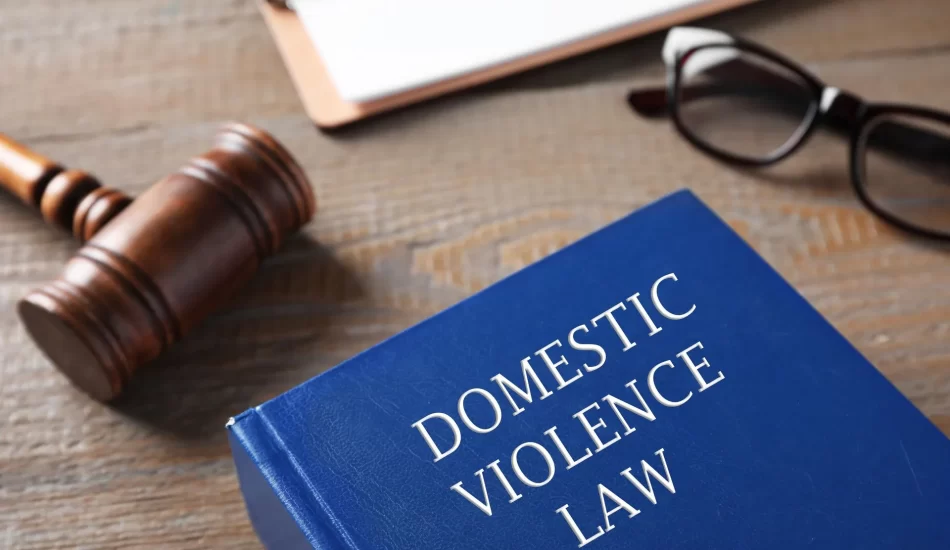A Breakdown of the Domestic Violence Laws in the State of Georgia

Domestic violence is an ugly reality of life. Despite having laws that are designed to address and punish offenders, domestic violence affects communities across the country. In particular, understanding the specific laws about domestic violence in the state of Georgia can make a significant difference for victims seeking relief under state law.
This article explores the range of legal protections available under Georgia’s domestic violence statutes and outlines key concerns related to remedies and enforcement. We will examine protective orders, criminal penalties associated with violations, as well as additional resources available to survivors of domestic abuse in this southern state. By providing relevant background information on current law around domestic violence in Georgia, advocates and victims alike will gain greater insight into how these statutes operate both legally and practically.
Definition of Domestic Violence in Georgia
Domestic violence in Georgia is defined as any act of physical, sexual, or emotional abuse committed by one family or household member against another. This includes spouses, former spouses, children, parents, stepparents, and anyone who currently lives or has lived with the victim. In addition to physical violence or threats of violence, domestic abuse can also include stalking behavior and financial exploitation.
Under Georgia law, victims have several legal protections they can seek if they are experiencing domestic violence. One such protection is a protective order that prohibits the offender from having contact with the victim. Violations of these orders can result in criminal penalties ranging from fines to imprisonment. Additionally, those convicted of domestic violence offenses may be required to attend counseling programs and/or undergo probationary periods as part of their sentencing.
Overall, understanding the definition of domestic violence in Georgia is crucial for anyone seeking relief under state law. Victims should be aware of their rights under state statutes and take immediate action if they feel unsafe in their relationships.
Protective Orders and Restraining Orders
Protective orders and restraining orders are commonly used legal tools to protect victims of domestic violence. In Georgia, a protective order is a court-issued mandate that prohibits an abuser from contacting, approaching, or assaulting the victim or their family members. The order can also offer temporary possession of a shared home and force an abuser to pay child support, among other things. Protective orders have become increasingly important as they can provide immediate relief for victims seeking protection from an abusive partner.
In contrast, restraining orders are typically used in civil cases where one party feels threatened by another person’s behavior but don’t necessarily involve physical violence. They may be issued in response to stalking or harassment incidents without any prior history of domestic abuse. Though not related specifically to domestic violence laws in Georgia, understanding how these two types of legal actions differ is critical for anyone considering pursuing such interventions for personal safety reasons. Consultation with local law enforcement officials or attorneys specializing in this area of law would undoubtedly be helpful when making decisions about which option is best suited given your circumstances and needs before moving forward on either path!
Criminal Penalties for Domestic Violence in Georgia
In Georgia, domestic violence is categorized as any act of physical or emotional abuse committed by one member of a household against another. It includes battery, assault, stalking, and harassment. Criminal penalties for domestic violence in Georgia depend upon the severity of the offense and range from a misdemeanor to felony charges with strict fines and jail time. The state enforces a zero-tolerance policy towards domestic violence crimes and has imposed stringent laws to curb this menace.
The criminal penalties for domestic violence in Georgia are harsh enough that offenders face not just fines but also imprisonment for their actions. A first-time offender can be sentenced to up to twelve months in prison while subsequent offenses have higher penalties reaching twenty years of imprisonment depending on aggravating factors such as the use of deadly weapons, prior convictions, and the extent of the injury inflicted upon victims. The government actively fights against this societal issue which affects both individuals and communities at large so that victims do not suffer silently without having proper legal recourse available to them. Contact attorney Jarrett Maillet for further guidance.
Jarrett Maillet J.D., P.C.
210 E 31st St
Savannah, GA 31401
912-713-3426


